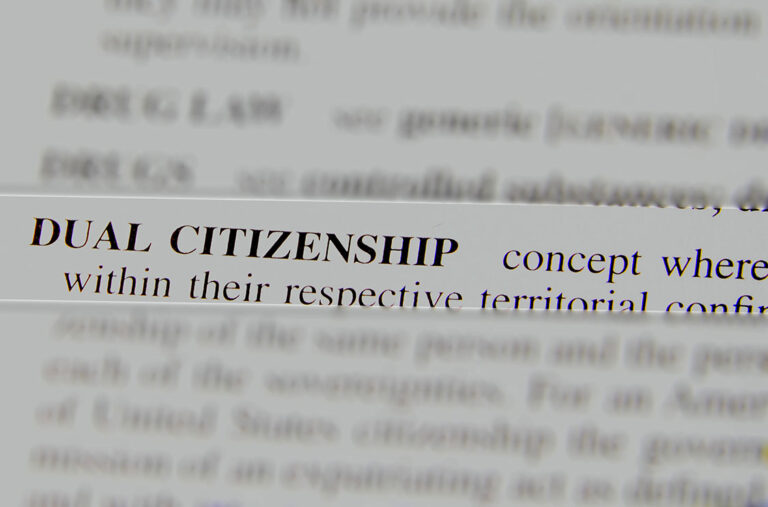It’s an era of remote work, and that means more people than ever before have found themselves free to move anywhere in the world—as long as they can get a good internet connection. This group of people—called digital nomads—are now being actively courted by countries.
Top among these is the gorgeous Adriatic nation of Croatia.
In January 2021, Croatia created the Digital Nomad Visa. They were one of the first European countries to have this program (Estonia was technically first).
The program gives you an easy pathway to a visa, which lets you enjoy Croatia’s low cost of living and fantastic culture. While you’re living there, you also get to freely travel throughout Europe.
This guide shows you info on eligibility, details, and everything you’ll need to know as a digital nomad heading to your new life in Croatia.
Who is Eligible?
Eligibility rules are all focused on making sure that you have enough money to take care of yourself and that you won’t be taking employment opportunities from Croatian people.
This is key: not every remote worker qualifies for Croatia’s Digital Nomad Visa. The program is exclusively designed for third-country nationals, which excludes citizens in the European Union, European Economic Area (EEA), and Switzerland—but that’s because they already have the right to live, work, and buy property in Croatia, so the visa wouldn’t give them any benefit.
To be eligible, applicants must:
- Work for a foreign employer or own a business registered outside Croatia. You cannot engage in any work for Croatian companies or clients.
- Demonstrate a stable income of at least 2.5 times the average Croatian monthly net salary. This translates to around €2,700–€2,800 per month or a lump sum of €34,400 for a year (around $36,016). For every family member or life partner you add to your visa, that number needs to go up by 10%.
- Have valid health insurance covering their entire stay in Croatia.
- Have a clean criminal record, with an official police clearance certificate from their home country and any other country they have resided in for over a year prior.
- Hold a valid passport that will remain valid for at least three months’ past your intended departure date.
Application Process
1. Documents
Before applying, prepare the following:
- Application form (available here as a PDF)
- Copy of your passport (valid for at least three months beyond your planned stay)
- Proof of health insurance valid in Croatia
- Proof of employment or business ownership abroad
- Financial documentation (bank statements, pay slips, or proof of savings meeting the minimum requirement)
- Background check certificate, legalized and translated if necessary
- Croatian address, whether a rental contract, hotel booking, or temporary accommodation
All documents must be in Croatian or English, with any non-English financial documents clearly showing monetary figures in a recognizable currency.
2. Application
You can apply online, at a Croatian embassy/consulate in your home country, or in person at a police station in Croatia.
If you enter Croatia visa-free (e.g., U.S. citizens can visit for 90 days as tourists), you can apply while already in the country. Those needing a visa to enter Croatia must apply from abroad.
3. Wait for Approval
Once submitted, authorities review the application and will typically respond within 30 days.
But just because this is typical doesn’t mean your plan should rely on that turnaround time. We generally recommend that you apply at the very least two months before your intended move. If even a single document faces an issue, you could have long setbacks in your timeline.
4. Residence Permit
Once approved, visit a Croatian consulate to obtain a Type D visa for entry.
After arriving, you’ll need to register your temporary address with the local police within three days and complete your biometric registration (fingerprints and a photo). This let’s you get your residence permit card.
Duration and Renewal
The Digital Nomad Visa grants a maximum stay of one year, and the visa cannot be extended. Once your permit expires, you must leave Croatia for at least six months before applying again. This prevents continuous long-term stays under this visa.
Remember that this permit does not lead to permanent residency or citizenship. And if you want to stay longer (there’s a high likelihood you will fall in love with Croatia, after all), you’ll need to explore getting permanent residence.
Learn more about other popular digital visas in Europe:
- Portugal
- Spain
- Malta
Costs and Living Expenses
Application and Visa Fees
- Visa processing fee: €46.45
- Residence permit card fee: €31.85
- Administrative stamp fee: €9.29
- Optional expedited processing fee (varies by consulate)
Cost of Living in Croatia
Compared to Western Europe, Croatia offers a relatively affordable lifestyle. Estimated monthly costs for a single nomad:
- Accommodation: €600–€800 (Zagreb), €800+ (coastal cities in peak season)
- Groceries: €200–€300
- Dining Out: €8–€10 per meal
- Internet & Utilities: €100–€150
- Public Transport: €30 monthly pass
Coastal spots during high season will have higher rental prices. However, in winter, rents can drop significantly, offering better deals for long-term stays.
Income Taxes
Digital nomads don’t owe Croatian income taxes, because you aren’t allowed to be receiving income from a Croatian employer. But some countries, like the U.S., require tax filings regardless of residency status.
There are times when, living in the country for a year, you’ll end up in situations where you could theoretically owe Croatian taxes. Because things can get complicated quickly, we recommend having a tax professional walk you through everything if that’s the case.
Learn more about tax liability in Croatia for dual citizens here.
Joining the Digital Nomads
Croatia’s Digital Nomad Visa provides a fantastic opportunity for remote professionals seeking a temporary European base. After a year in this beautiful nation, you might decide you’d like to live here permanently.
If that sounds like you, check out our other resources on becoming a dual citizen in Croatia.



